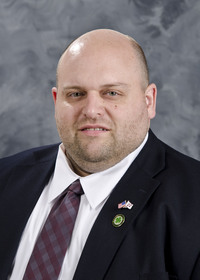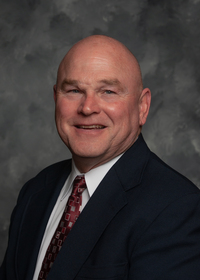Information Possibly Outdated
The information presented on this page was originally released on November 10, 1997. It may not be outdated, but please search our site for more current information. If you plan to quote or reference this information in a publication, please check with the Extension specialist or author before proceeding.
New Program Teaches Livestock Ethics
By Amy Woolfolk
MISSISSIPPI STATE -- Youngsters planning to participate in the Mississippi junior livestock program in 1998 have some studying to do before the season begins in January.
Dr. Joe Baker, extension animal science specialist at Mississippi State University, said 4-H and FFA officials serving on an ethics task force committee decided in February 1997 to make the junior livestock program truly a program for the juniors.
"Over the years as shows have become more competitive, it seems like the junior livestock project has become more of an adult project," Baker said. "We wanted to provide a more honest and fair competitive atmosphere in which young people can learn and have fun."
The Mississippi 4-H club and the state FFA program have initiated a livestock ethics training program for juniors wanting to participate in shows sponsored by the two groups.
Baker said the ethics program makes the junior livestock project more complete by adding an avenue to address ethical issues.
"We are excited about the program because it gives us an added dimension for teaching ethics to our juniors," Baker said.
The new ethics program requires each junior and at least one parent to attend a training session put on by county 4-H agents and FFA advisors before Jan. 8. If juniors do not attend a session, they will not be eligible to show in any of the five district shows or in the state show held at the Dixie National.
Agents and advisors will use video tapes and handouts to help educate juniors and adults on ethical livestock practices at home and at the shows. At the end of the seminar, youth and their parents will sign a code of conduct pledging to abide by the rules of the program.
Juniors pledge to do their own work, to treat their animals properly and to follow the rules of each show entered. Adults pledge to teach honesty and sportsmanship and to take responsibility for the development of character of the youth participating.
Exhibitors who do not follow the code of conduct may be disqualified from a show, forced to forfeit all premiums or awards, or possibly barred from participating in future shows sponsored by 4-H or FFA. A rules committee of show officials is responsible for deciding and carrying out any such penalties.
"We need everyone involved in the program to take a personal responsibility to practice ethical behavior, both at home and at shows," Baker said.
Baker said the junior livestock program teaches livestock production and gives youth an understanding of the industry. The main objective of the program, however, is to use livestock to teach life skills.
"Youth do learn about agriculture and the livestock industry, but more importantly, owning and exhibiting an animal helps a young person develop integrity, responsibility, citizenship, and sportsmanship," Baker said. "These skills will help our youth become productive citizens in society."
County extension offices have more information on the new ethics program and scheduled dates for training sessions.



